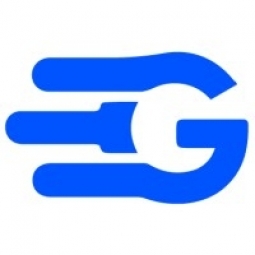GoComet

Overview
|
HQ Location
United States
|
Year Founded
2017
|
Company Type
Private
|
Revenue
< $10m
|
|
Employees
201 - 1,000
|
Website
|
Twitter Handle
|
Company Description
GoComet is the world's leading AI Powered Transportation & Freight Management Solution, revolutionising the Supply Chain and Logistics industry.
With a range of AI-powered, cloud-based products, GoComet covers multiple modes in a single shipment, from the warehouse to the doorstep of an end consignee.
GoComet solves four major logistics problems: lack of transparency in freight rate procurement, lack of end-to-end visibility in cargo movement, fragmented communication, and overpayments due to invoice inaccuracies.
IoT Snapshot
GoComet is a provider of Industrial IoT networks and connectivity, functional applications, analytics and modeling, sensors, platform as a service (paas), and cybersecurity and privacy technologies, and also active in the agriculture, automotive, glass, marine and shipping, mining, pharmaceuticals, plastics, retail, and transportation industries.
Technologies
Use Cases
Functional Areas
Industries
Services
Technology Stack
GoComet’s Technology Stack maps GoComet’s participation in the networks and connectivity, functional applications, analytics and modeling, sensors, platform as a service (paas), and cybersecurity and privacy IoT Technology stack.
-
Devices Layer
-
Edge Layer
-
Cloud Layer
-
Application Layer
-
Supporting Technologies
Technological Capability:
None
Minor
Moderate
Strong

Supplier missing?
Start adding your own!
Register with your work email and create a new supplier profile for your business.
Case Studies.
Case Study
HaulMatch's Transformation: Enhancing Customer Satisfaction with Comprehensive Shipment Visibility
HaulMatch, a leading online automobile shipping broker, was facing significant challenges due to a lack of visibility over shipments. The company's shipments, which often took 20-30 days of transit time, were difficult to track, leading to numerous queries from shippers about the status of their shipments. This required HaulMatch’s internal team to invest several hours in fetching the latest update on their customer’s shipment location. The team had to visit third-party websites for updates on shipment location and then share the details with their customers, a process that was time-consuming, tedious, and prone to errors. Furthermore, their customers could not leverage crucial insights such as visibility on the carriers offering them the best service, trade routes that ensure cost optimisation and speedy deliveries. The inefficiencies in tracking updates led to numerous queries regarding the status of the shipment, leading to customer dissatisfaction.
Case Study
Polymers International Enhances Customer Service through Automated Shipment Tracking
Polymers International, a global player in the plastics and rubber industry, was facing significant challenges in tracking the movement of its approximately 200 monthly shipments. The lack of efficient tracking mechanisms led to difficulties in keeping customers informed about shipment statuses, resulting in confusion and subpar customer service. The operations team had to visit multiple carrier websites to gather updates on shipment locations, a process that was not only time-consuming and prone to errors but also diverted the team from focusing on more critical tasks. The inaccuracies in tracking updates led to a surge in customer queries regarding shipment statuses. The team also struggled with accessing timely information on changes in departure and arrival timings, making it challenging to provide customers with accurate delivery dates. Furthermore, the company was unable to leverage crucial insights such as visibility on the carriers offering the best service, trade routes ensuring cost-effectiveness and speedy deliveries, thereby compromising their ability to identify cost-saving opportunities and make informed decisions.
Case Study
Global Pharma Company Streamlines Freight Invoice Processing with GoInvoice
The global pharmaceutical company, established in 1977, faced significant challenges in its freight invoice verification process. With hundreds of shipments every month, the company operated on a global long-term price agreement with its freight forwarders. However, errors in the invoice verification process were affecting the productivity and efficiency of its logistics and accounts teams. The logistics team had to manually check every invoice and forward it to the account and finance department for approval. This labor-intensive process involved a large team and kept them from focusing on more critical tasks. Over 4% of the invoices received were duplicates, and the entirely manual verification process made seeking approvals, processing payments, and following up with vendors for the correct invoices extremely difficult and time-consuming. The process was prone to errors, leading to overpayments due to unchecked invoices that did not match the initial quotation. There was also a lack of standardisation and transparency in the invoice reconciliation process. The auditing process was inefficient and complex due to the lack of a consolidated repository to document the invoices and their status.
Case Study
Tyre Manufacturer Overcomes Suez Canal Blockade with IoT Solution
A leading tyre manufacturing company based in Mumbai, India, with production facilities across the globe, faced a significant challenge due to the Suez Canal blockade in March 2021. The blockade, caused by a skyscraper-sized container ship named Evergreen, left about 200 ships stranded at either end of the canal, severely impacting global trade. The financial implications were massive, with the blockade amounting to a loss of nearly £7 billion of goods a day, or approximately £290 million an hour. The tyre manufacturer's westbound and eastbound shipments were halted, impacting cargo worth $18.5 million. This resulted in delays in the delivery of finished goods, affecting eight customers across Europe and the US. Furthermore, the supply of raw materials to production facilities in India was severely disrupted, causing significant interruptions in the production cycle.
Case Study
Mega WeCare Enhances Efficiency and Reduces Costs through RFQ Management Automation
Mega WeCare, a global pharmaceutical and nutraceutical products manufacturer, was facing several challenges in its logistics operations. The company had a limited vendor pool, which restricted the number of negotiations for each shipment, leading to higher shipping costs. The traditional method of negotiating deals via calls and emails was hampering the productivity and overall efficiency of its logistics team. Many of the company's shipments were contract-based, preventing them from leveraging competitive rates throughout the year. Additionally, the annual contract prices included buffers and contingent costs, resulting in additional expenses for the company. The manual creation of reports led to inefficient data analysis and unclear insights, further complicating the situation.
Case Study
Real-Time Visibility Mitigates Port Congestion for Leading Chemical Distributor
The company, a leading chemical distributor with a presence in over 11 countries, faced significant challenges due to the pandemic-driven port congestion that affected global trade. With over 200 international shipments per month, ensuring timely delivery was a top priority. However, the port congestion disrupted over 51% of the company’s shipments. The prolonged port delays impacted the production cycles of the company’s suppliers, especially in the far East, North America, and Europe, compromising delivery schedules across regions. The company also struggled with a capacity crunch as vessels queued outside ports and turnaround times increased. Securing cargo space became challenging due to lack of visibility over space availability and changes in lead times. Additionally, communication gaps arose as keeping stakeholders informed about changes in arrival timings, delays in transshipments, etc., became increasingly difficult due to a lack of reliable information on port delays and inefficiencies in tracking updates.
Case Study
Streamlining Logistics Operations in a Leading Pharmaceutical Company with IoT
The company, a global leader in specialty generic pharmaceuticals, was facing significant challenges in managing its logistics operations. With over 100 monthly shipments via ocean and air, tracking the progress of all freight and assessing the performance of Logistics Service Providers (LSPs) was a daunting task. The communication process was inefficient, with updates on task completion being shared via emails, leading to multiple email trails for each shipment. This made it difficult to map and audit the progress of every shipment. The inability to track shipment status and assign follow-up tasks to stakeholders resulted in hefty penalties like demurrage and detention charges. Furthermore, the negligence of the LSPs could not be identified until the fine was levied. The documentation process was also unorganized, with all shipment documents being shared via email. The lack of a common repository for these documents led to process inefficiencies and difficulty in tracking missing documents.







